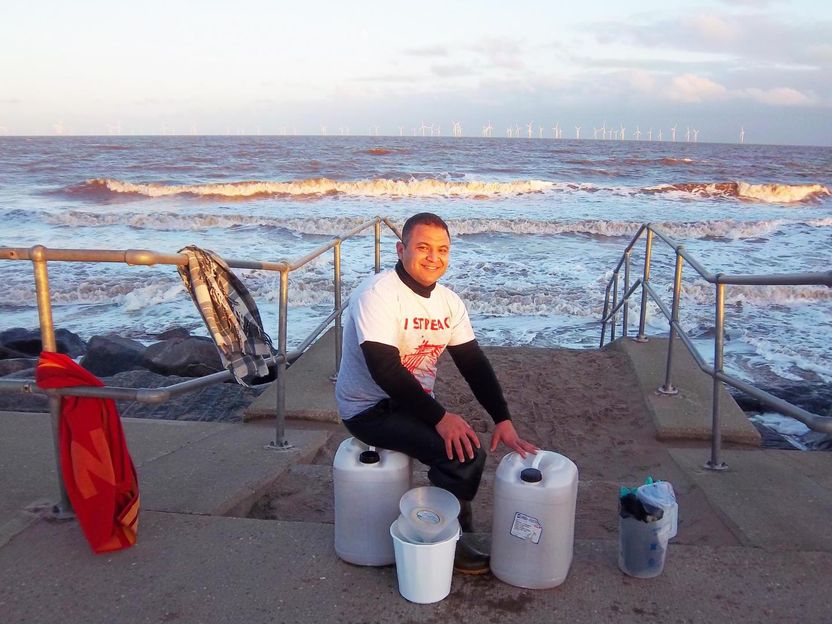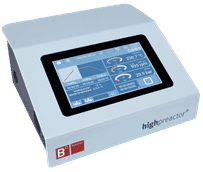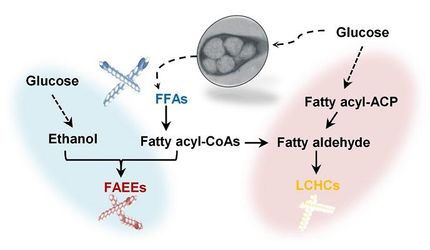Less drain on freshwater supplies with seawater fuel discovery
Researchers have found that seawater can replace freshwater to produce the sustainable fuel bioethanol, reducing the need to drain precious resources.

This is Dr. Abdelrahman Zaky with sea samples.
Dr Abdelrahman Zaky
The study was carried out by researchers at the University of Nottingham. Their results showed that seawater can be used in Bioethanol production along with a new strain of marine based yeast.
Dr Abdelrahman Zaky, a microbiologist in the School of Biosciences, conducted his research using seawater from the Lincolnshire coast and took his marine yeast samples from various locations in the UK, US and Egypt. He put them through the fermentation process in the laboratories in Bioenergy and Brewing Science Building at the University's Sutton Bonington campus.
Dr Zaky said: "Current fermentation technologies mainly use edible crops and freshwater for the production of bioethanol. With an ever growing population and demand for biofuels and other bio-based produces, there are concerns over the use of the limited freshwater and food crops resources for non-nutritional activities. Also, freshwater has a high price tag in countries where it is available, pushing up the price of production."
Increased awareness of global warming and climate change, combined with petrol price rises, has led to the search for alternative sustainable sources of energy. Bioethanol has been considered one of the best fuel alternatives because it is a liquid fuel with similar characteristics to petrol and governments around the world are looking to increase its production.
High water footprint
Water is a key element in the fermentation process in the production of Bioethanol, a sustainable fuel derived from maize or sugar cane. Currently it has an extremely high-water footprint with an estimated 1,388 to 9,812?litres of freshwater consumed for every litre of bioethanol produced.
Dr Zaky said: "The main purpose of marine fermentation is to introduce an alternative source of water and biomass for industrial biotechnology in order to reduce pressure on use of freshwater and arable land, allowing these resources to be dedicated to production of food and feeds an reducing production costs. Marine fermentation is the approach where seawater, marine biomass and marine microorganisms are used in the fermentation process.
"Seawater is a freely available and plentiful resource, and contains a spectrum of minerals, some of which have to be added to freshwater. The fermentation process using seawater also produces salt and freshwater as bi-products adding to economic benefits of the process."
Original publication
Other news from the department science
These products might interest you

BRC - Berghof Reactor Controller by Berghof
BRC - complete package for data acquisition, storage and control of all process parameters
Touch controllers are easy to use and provide quick access to all important functions

Berghof Reaktortechnologie - Hoch- und Niederdruckreaktoren, Druckbehälter und metallfreie Reaktoren by Berghof
Safe high- and low-pressure systems for aggressive media
Corrosion-resistant reactors with PTFE lining - individually configurable

Get the chemical industry in your inbox
By submitting this form you agree that LUMITOS AG will send you the newsletter(s) selected above by email. Your data will not be passed on to third parties. Your data will be stored and processed in accordance with our data protection regulations. LUMITOS may contact you by email for the purpose of advertising or market and opinion surveys. You can revoke your consent at any time without giving reasons to LUMITOS AG, Ernst-Augustin-Str. 2, 12489 Berlin, Germany or by e-mail at revoke@lumitos.com with effect for the future. In addition, each email contains a link to unsubscribe from the corresponding newsletter.
Most read news
More news from our other portals
Last viewed contents
Albany Molecular Research, Inc. Establishes Singapore Research Centre

CELLA IBERICA S.A. - Vilassar de Dalt, Spain

Haltermann Carless Deutschland GmbH - Hamburg, Germany

Anton Paar ProveTec GmbH - Germany - Blankenfelde-Mahlow, Germany





























































